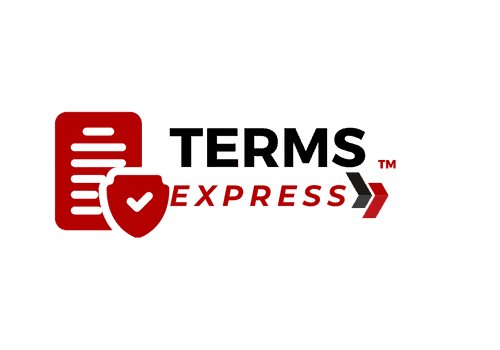Terms and conditions (“T&Cs”), which are also sometimes referred to as terms of service, are legal agreements that, in addition to other online agreements, such as a privacy policy, act as an online contract between the owner of a website or other web-based application and those who utilize it. As a terms and conditions lawyer, we understand that whether you operate an e-commerce website or some other business with an online presence, terms and conditions are necessary to adequately protect your business and bring with them a variety of legal considerations.

Why Terms and Conditions Are Essential for Businesses
As is illustrated in our comprehensive guide to terms and conditions compliance, depending on the type of business and website or app, online terms could include a range of clauses, such as those that protect intellectual property, provisions to limit liability, and acceptable use and associated banning of users, among a whole host of other potential clauses.
Understanding The Value of Terms Drafted By A Lawyer For Your Website & App
When it comes to understanding the role of a lawyer focused on terms and conditions, there are numerous more nuanced considerations besides just which clauses to include, such as which arbitration provider to utilize if there is an arbitration provision in the terms and conditions (as a side note, arbitration clauses are increasingly proliferating, though there are nuanced considerations about whether to include one).
Risks of Poorly Drafted or Generic Terms and Conditions
Further, and in particular, in the age of artificial intelligence (AI) and associated legal considerations, ensuring that terms of service are inclusive of any AI-related processes and features is critical. This additional area of focus in the AI context was illustrated by the backlash against Adobe and their terms, which lacked clarity about how they apply in the age of AI. There are more niche aspects of terms and conditions that require attention, such as not barring consumer reviews to comply with specific state laws, and the cottage industry has popped up trying to “pigeonhole” private actions via opaquely worded terms. There is also the related scourge of ADA website compliance lawsuits, as well as CIPA-type claims that can be at least partially accounted for and mitigated to some degree via protective terms and conditions.
Some additional examples of terms and conditions and their “real world” effects include the following:
- The FTC has issued guidance concerning unilaterally changing online terms and stated, “It may be unfair or deceptive for a company to adopt more permissive data practices—for example, to start sharing consumers’ data with third parties or using that data for AI training—and to only inform consumers of this change through a surreptitious, retroactive amendment to its terms of service or privacy policy.
- After the genetic testing company 23andMe was hacked, it amended its online terms and conditions, among other changes, to prevent users from using class actions in an apparent attempt to shield the company from debilitating mass litigation. TikTok made a similar change to its terms with the goal of avoiding similar types of class actions.
- A New Jersey couple severely injured during an Uber ride must take their complaint to arbitration per the company’s use terms, a state appeals court ruled after they had agreed to Uber’s “terms of use.”
- The Second Circuit handed down a ruling in United States v. Maher rejecting the claim that terms of service waive Fourth Amendment rights, at least in the vital context of a Google account.
- A recent case involving HBO illustrated the challenge of updating terms on a website to ensure any amendments are binding to both previous and current users.
- Class action lawyers are recruiting users of several companies that have “non-disparagement” type clauses that are then used as vectors for lawsuits. For example, one of the targeted companies, Turo, a peer-to-peer car rental app, has a clause that states: “The Parties agree that they will not take any action that will harm the reputation of the other Party, or which would reasonably be expected to lead to unwanted or unfavorable publicity to either of the other Party.” Ensuring that terms steer clear of such a litigious area is critical.
- A case involving ClassPass stressed the importance of correctly formatting the consent architecture and verbiage to ensure that terms and conditions and privacy policies are binding on users.
The Importance of User Assent (Clickwrap vs. Browsewrap)
In addition to considerations about the contents of the terms and conditions, the specific architecture of how users can view and bind themselves to the terms plays a critical role in whether courts will find that there is an enforceable contract. Specifically, the user interface of where and how a user agrees to a website or app terms requires strategic placement of any buttons or links, such as in “clickwrap” (affirmative agreement to terms via a “check the box”) versus “browsewrap” (where the terms and any other agreements are in the footer but no affirmative consent). The “wrap” terminology comes from the “shrinkwrap” notices that were included with physical items. As the court in Olberstein v. Live Nation stated: “To ensure that an online agreement passes muster, clickwrap is the safest choice.”
It is also essential to ensure that varying online terms, such as those relating to promotions like sweepstakes, align with the general terms, as was illustrated in the Coinbase sweepstakes case that went before the Supreme Court. These considerations help illustrate that while terms and conditions might seem mundane and meaningless, and just legalese and not require much attention, the opposite is true; terms and conditions play a pivotal role in protecting you and your business. The power and importance that terms play in our digital lives are illustrated by the fact that there are even podcasts, such as this one from CNN, that focus on this seemingly banal area of the law.
Comparing DIY/Generated T&Cs vs. Lawyer-Drafted Terms and Conditions
In contrast to terms that an automated tool might generate, terms and conditions drafted by a lawyer are specific to your business and ensure that relevant and essential protections are in place. But, perhaps, even more importantly, a lawyer helps ensure that any disadvantageous terms are not included. A set of terms created online by a generator may contain such unwanted clauses, leading a business to unknowingly and unnecessarily increase its risk and not benefit from valuable protections. Astute drafting by a lawyer concerning where to include advantageous clauses and when to exclude those terms that might be disadvantageous is critical, as courts generally hold that terms and conditions correctly agreed to online by consumers are legally enforceable agreements, resulting in the potential for harmful clauses to be used against your business. In addition, there are several ways that terms and conditions and a Privacy Policy interact, and it is vital that there is an understanding of the clauses in each agreement that correspond with each other.
Contact Us and Learn How a Terms and Conditions Lawyer Can Help
At RICHT, we provide clients with an affordable way to protect their businesses with comprehensive terms and conditions specific to the nuances of their particular operations. We evaluate your business to understand how you can best account for and mitigate risk, and then draft suitable terms and conditions.











